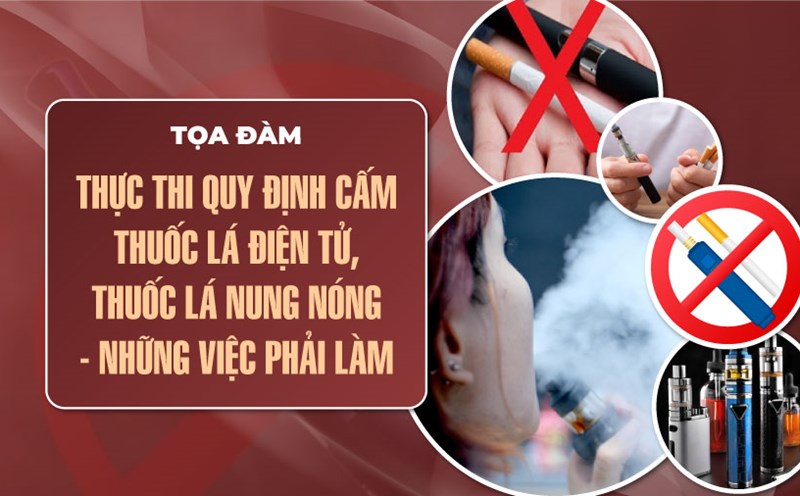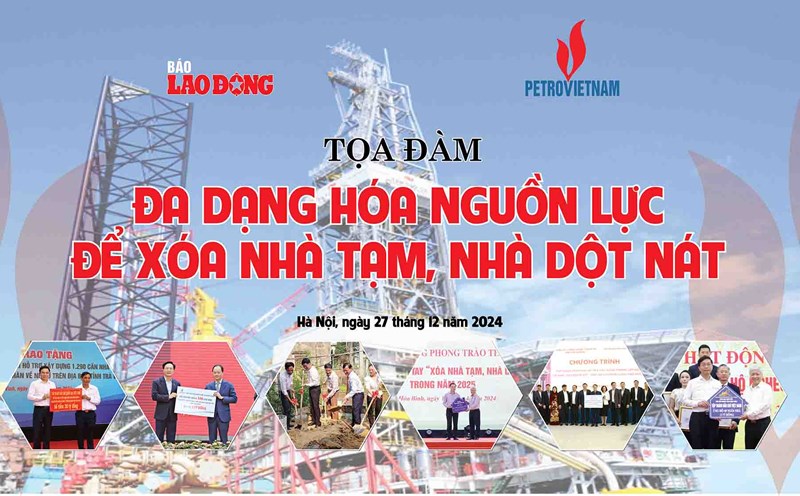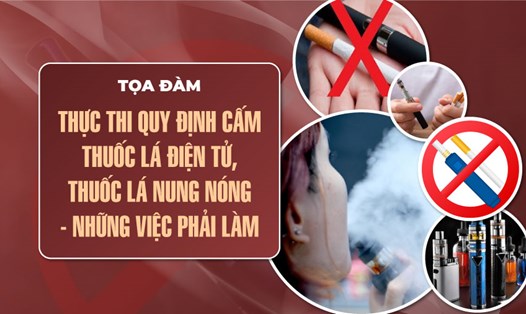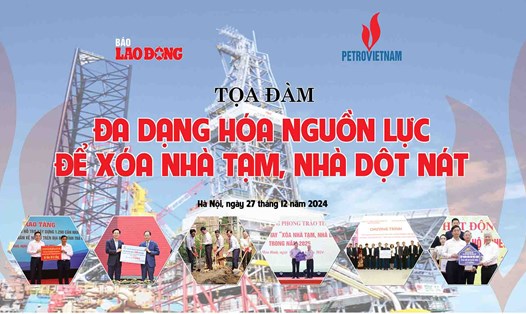The birth of the Communist Party of Vietnam on February 3, 1930 was a great historical turning point for the nation, leading the Vietnamese revolution from one victory to another. Today, under the wise, talented, direct and comprehensive leadership of the Party, our country and people have made careful preparations, accumulated enough strength and position for breakthrough development, and are ready to enter a new era - the era of national growth.
Entering a new era is an inevitable development step, in accordance with the laws of motion of the Vietnamese revolution and the development trend of the times. This is also the time when the Party's will blends with the people's heart in the aspiration to build a prosperous, happy, prosperous, and powerful country, to soon successfully build socialism, and to stand shoulder to shoulder with the world powers.
According to General Secretary To Lam, the era of national development is the era of development, the era of prosperity, the era of prosperity under the leadership of the Communist Party of Vietnam, successfully building a socialist Vietnam, a rich people, a strong country, democracy, equality, civilization. Strongly arousing national spirit, spirit of autonomy, self-confidence, self-reliance, national pride, aspiration for national development; closely combining national strength with the strength of the times. All people have a prosperous and happy life, are supported to develop and enrich themselves; contribute more and more to peace, stability, development of the region and the world, to the happiness of humanity and global civilization...
The new era begins at the 14th National Party Congress. From now on, all Vietnamese people, hundreds of millions of people as one, under the leadership of the Party, unite, join hands, make the most of opportunities and advantages, push back risks and challenges, and bring the country to comprehensive and strong development, breakthrough and take off.
The orientations and analysis of theoretical and practical bases on "New Era, the Era of Rising of the Vietnamese People" pointed out by General Secretary To Lam are strategic orientations, formed on solid scientific foundations, with high persuasiveness and leadership.
To better understand the awareness, content, scientific and practical theoretical basis to bring our country into a new era; the destination of the era of rising up; the basis for positioning the goal to bring the country into a new era; the requirements set forth in the comprehensive and synchronous implementation of tasks and solutions to create breakthrough development in all fields; opportunities, fortunes, opportunities and advantages of the country in the new era; the difficulties and challenges that need to be identified, with solutions to respond, face and overcome..., the Government Electronic Information Portal organizes the Seminar "The era of rising up of the nation - Opportunities and challenges" with the participation of experts and scientists to systematize, analyze, comment, interpret and discuss this issue.
Guests attending the seminar include:
- Associate Professor, Dr. Dao Duy Quat, former Deputy Head of the Central Ideology and Culture Committee
- Associate Professor, Dr. Tran Dinh Thien, former Director of Vietnam Economic Institute
- Dr. Nguyen Van Dang, Ho Chi Minh National Academy of Politics
- Prof. Dr. Vu Minh Khuong, Lecturer at Lee Kuan Yew School of Public Policy, Singapore
- Dr. Nguyen Si Dung, former Deputy Head of the National Assembly Office (coordinator)
Dr. Nguyen Si Dung: May I ask Associate Professor, Dr. Dao Duy Quat, with the position and strength that our country has accumulated after 40 years of renovation, it can be said that this is the ripe time for our country and our people to enter a new era, an era of the Vietnamese people's rise. This is also an inevitable development step, in accordance with the laws of motion of the Vietnamese revolution and the development trend of the times. What are your views and comments on this issue?
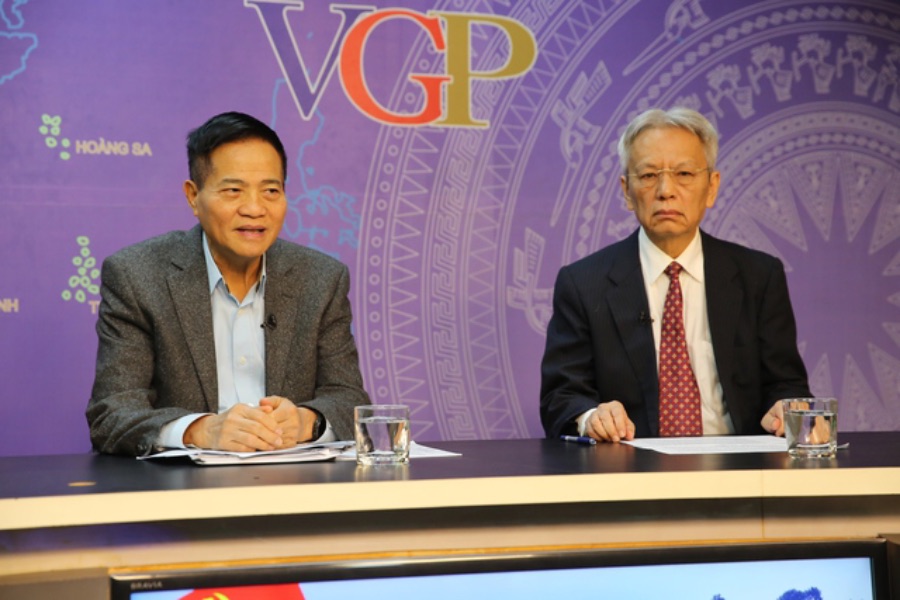
Associate Professor, Dr. Dao Duy Quat: Nearly half a year ago, Professor, Dr. To Lam was elected by the Central Committee to hold the position of General Secretary of the Party Central Committee. With the position and responsibility of the head of the Party, in nearly half a year, he has made many speeches and articles presenting a message that we consider to be a very great idea. That is, our people and our country are preparing to enter a new era, an era of rising up, an era of accelerating breakthroughs to achieve the goal of becoming a developed socialist country with high income, rich people, strong country, democracy, fairness and civilization by the middle of this century. This message, this great idea has been set out for the entire Party and the entire people to deeply perceive the new era.
We start from the concept of era. The General Secretary's article and the conversation at the Subcommittee on Documents in preparation for the 14th Party Congress mentioned it a lot. But in general, we all think that talking about an era means talking about a certain historical stage of development of the nation and of humanity. Here I want to talk about development in politics, economics and society. That era must be marked by qualitative development, that is, from quantity must be transformed into new quality, must be marked by achievements in all political, economic and social fields to create new quality, to achieve the goal and move to a new era.
With this awareness, our Party in the 1991 Platform as well as the 2011 Platform used the concept of era. Specifically, in the preface of the Platform for national construction during the transition period to socialism in 1991, the Party presented: Since 1930, our Party, founded and trained by President Ho Chi Minh, has led the Vietnamese people to overcome countless challenges and achieve great victories. The success of the August Revolution in 1945 opened an era of independence and freedom for the Vietnamese people. The Party applied this concept and presented it right in the preface of the Platform for national construction during the transition period to socialism in 1991.
We see that the revolutionary journey from the birth of our Party in 1930 to 1945 opened up an era of independence and freedom for our nation. From 1946 to 1975, our Party led the Vietnamese people to carry out the cause of nation building, and especially the cause of resistance and national unification, creating historical miracles and opening a new era for the Vietnamese nation - the era of building socialism and defending the socialist Fatherland.
In 1986, our Party initiated the cause of comprehensive national renovation in the direction of socialism and deep and comprehensive international integration. After 40 years of this renovation, as the late General Secretary Nguyen Phu Trong and recently General Secretary To Lam have assessed, we have achieved great achievements, creating new, strong potentials, new, very strong forces.
Notably, General Secretary To Lam also analyzed that in the context of the world, there are two very notable characteristics: globalization is still taking place, an irreversible trend, despite ups and downs, that is, the trend of peace, cooperation, and development is still very strong. The second characteristic that the General Secretary pointed out is that strategic competition between major countries has never been as fierce as it is now. They have made compromises, but competition and confrontation are increasingly fierce and fierce in many fields, including politics, economics, technology... competition that both attracts and confronts is increasingly fierce and fierce. The General Secretary has a very sharp prediction that this strategic competition could end in 2030. At that time, a multipolar world could be formed to replace the unipolar world that appeared after 1991 when the socialist system in the Soviet Union and Eastern Europe collapsed.
The year 2030 may see the formation of a multipolar world, creating both new challenges and great new opportunities. For countries with intelligence, position, and the right foreign policy, they will be able to take advantage of and seize the power of the times in this condition.
If we know how to coordinate and closely link our conditions, potential, power, position, and prestige with strategic opportunities, we will definitely open up and enter a new era for the nation.
The message and great thoughts of General Secretary To Lam were completely agreed upon by the 10th Conference of the Central Executive Committee and decided to be included in the documents of the upcoming Congress to lead the entire Party, the entire army, and the entire people to truly enter with the spirit of acceleration, breakthrough, and drastic innovation like revolutions to create a leap forward in development. I see this creating an unprecedented excitement after the General Secretary's message.
09:19 December 27, 2024
Dr. Nguyen Si Dung: Associate Professor, Dr. Dao Duy Quat has clearly stated the conceptual framework of "era". An era is a new historical period, marked by differences from before, starting with the characteristic of shifting from quantity to quality. We see that when we gained independence from slavery, we began the era of national independence and freedom. We are currently living in the digital era, with the nature of the era being new technology, creating differences. The new era that our nation has entered is the "era of rising up". This nation has gone through many challenges and difficulties, now has a new position, rising strongly, not only developing economically, developing in science and technology but also rising to a new position in the international arena. That new position is not what we want but the world recognizes, the international community puts us in that position. That is the conceptual framework.
In recent times, General Secretary To Lam has mentioned many times at many conferences and scientific seminars the messages and orientations about the new era, the era of national development. These are strategic orientations formed on solid scientific foundations, with high persuasiveness and guidance. Dr. Nguyen Van Dang, could you comment and analyze more clearly the scientific arguments, practices, and perceptions about the new era according to the General Secretary's guiding and suggestive viewpoints as well as the time we choose to confidently and firmly enter the new era?
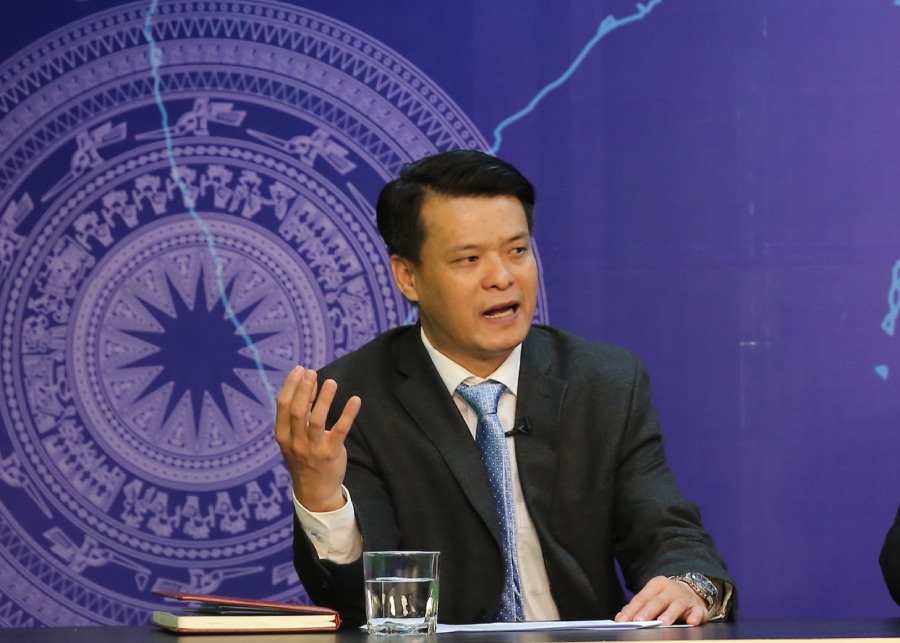
Dr. Nguyen Van Dang: As Associate Professor, Dr. Dao Duy Quat shared, the phrase “new era” is very good and inspiring. Through my observation, this phrase was first used by General Secretary To Lam at the meeting of the Document Subcommittee preparing for the 14th Party Congress on August 13. Then, on October 31, the General Secretary gave a presentation to the strategic cadre training class at the Ho Chi Minh National Academy of Politics.
Up to this point, the phrase "new era" has been very inspiring, well received and trusted by the people. The question is why is this phrase, this political determination, so enthusiastically received by the people?
Looking back at human history, the term "era" is often used by historians and sociologists to look back at the past and use certain physical characteristics to identify a period, for example the Stone Age, the Bronze Age or the Industrial Age, now the Technology Age, the Digital Age. We use "era" for the future, showing the difference. Here, we proactively identify a period of time in the future and the political determination of the Party and State leaders shows that, in the coming time, we will have very clear steps forward and changes in the reality of the country's economic and social life.
When we propose a future era, why is it so enthusiastically received by cadres, party members and the whole society? What is the basis for the persuasiveness of this phrase? This issue has been analyzed by many researchers in the press, media and especially in the presentations of General Secretary To Lam at the Ho Chi Minh National Academy of Politics, as well as at the Central Conferences and later meetings. There are many bases that help people observe, feel and convince people.
Economically, for example, after nearly 40 years of renovation, we have escaped the position of a poor country to become a middle-income country since 2008-2009. From a GDP per capita of less than 200 USD in the 1990s, to date, GDP per capita is about 4,300 USD. That is a very clear and convincing change.
Second, international trade, from being almost isolated in the international arena, has now achieved free trade agreements with nearly 20 countries, joined all international organizations in the world and has comprehensive strategic partnerships with the world's superpowers. That demonstrates Vietnam's deep, proactive and successful integration into the world.
Socially, we have been very successful in eliminating hunger and reducing poverty, which is considered a success story by international organizations such as the World Bank, bringing Vietnam's poverty rate down to a very low level.
Politically, from the late 1980s to the 1990s, the socialist system in Eastern Europe and the Soviet Union collapsed. Despite such strong political fluctuations and the world having diverse and complex competitions on the regional and global levels, Vietnam has maintained political stability for nearly the past 40 years.
Thus, it can be said that in all aspects: economy, politics, society, foreign affairs, international trade..., we have made very clear progress. Not only the people in the country enjoy those achievements, but the international community also acknowledges them. All of these have transformed into a state and mindset for the Vietnamese people to feel the need for a breakthrough to raise the national position to a new height. It is that mindset of the entire Vietnamese people that makes it so that when General Secretary To Lam mentioned the phrase "new era", then analyzed, commented and directed the people to the future, it was warmly received by the people, supporting the political determination of the Party and State in changing the national position in the next two decades, more specifically by the middle of the 21st century, making Vietnam a high-income developed country. That is, we strive to rise to the group of first-class countries in the world.
This is a very ambitious political determination, many challenges will await us, but I believe that what is happening shows that it is the aspiration of the Vietnamese people. After nearly 40 years of innovation, we must break through to rise up, not stagnate. The phrase "new era", "era of rising up" is very clear: We must rise up to break through, not be stagnant, progress slowly. Looking at the countries in the region, they have gone ahead of us and have developed very quickly in a period of decades. However, they then fell into a vicious circle, the middle-income trap. If we are not proactive, do not see that challenge to break through, rise up, we will also fall into the same situation as Malaysia, Indonesia, Thailand. We can increase GDP per capita to 8,000-9,000 USD but cannot surpass 10,000 USD, which means we are only at the level of an upper middle-income country, and cannot join the group of developed countries with GDP per capita above 13,000 USD, the human development index must exceed 0.8. That is the challenge.
Therefore, the phrase "stretching forward" that General Secretary To Lam used is very meaningful, as a reminder and warning that we must break through, otherwise we can still develop but will be stuck at a level below 10,000 USD/person/year and will not be able to join the group of developed countries, and will not be able to realize the 2045 vision of completely changing the position of the country and the nation in the international arena.
Based on the very practical basis that we have observed and felt the social sentiment, I would like to affirm that the "new era", the "era of rising up" of the nation that General Secretary To Lam initiated and mentioned is currently receiving great attention, sympathy, support from the people, creating inspiration throughout the entire social system. People expect the 14th National Party Congress to be a milestone for us to truly embark on changing the national position in the next two decades.
09:28 December 27, 2024
Dr. Nguyen Si Dung: Dr. Nguyen Van Dang has clearly stated the basis, both scientifically and practically. Firstly, our economic foundation has overcome poverty and developed very quickly and strongly. Vietnam is one of the fastest growing economies in the world. If we calculate income, during the renovation period, the income of Vietnamese people increased up to 20 times. Very impressive!
The second basis is that we have a very stable political system. Perhaps few countries have such a stable political system. That is a solid foundation for doing business, doing everything.
Third is international position and foreign policy. Now there are few countries that have a favorable international position like Vietnam. We can cooperate with almost all countries, all organizations, and can do business with everyone. Perhaps we have never been able to do business with all countries like now. That is a very important foundation. Because in fact we can produce a lot, what we need is the market. Now farmers can produce any fruit, can produce in large quantities, but the problem is having a market. We have 16 free trade agreements with other countries. That is an important foundation.
A foundation TS. Worth mentioning is the human heart, that is the inspiration of an entire nation. National pride is aroused. In fact, that is also a great strength. The Vietnamese people are reawakening their pride and will to rise up.
The starting point of the new era is currently determined to be the 14th National Party Congress. How should we continue to prepare to be ready to enter the new era? Please invite Associate Professor, Dr. Tran Dinh to answer this question. At the same time, he analyzed and commented more clearly on the objective necessity, orientation, and leadership of the General Secretary related to the destination of the era of rising up as well as the basis for positioning the goal of bringing the country into the new era.
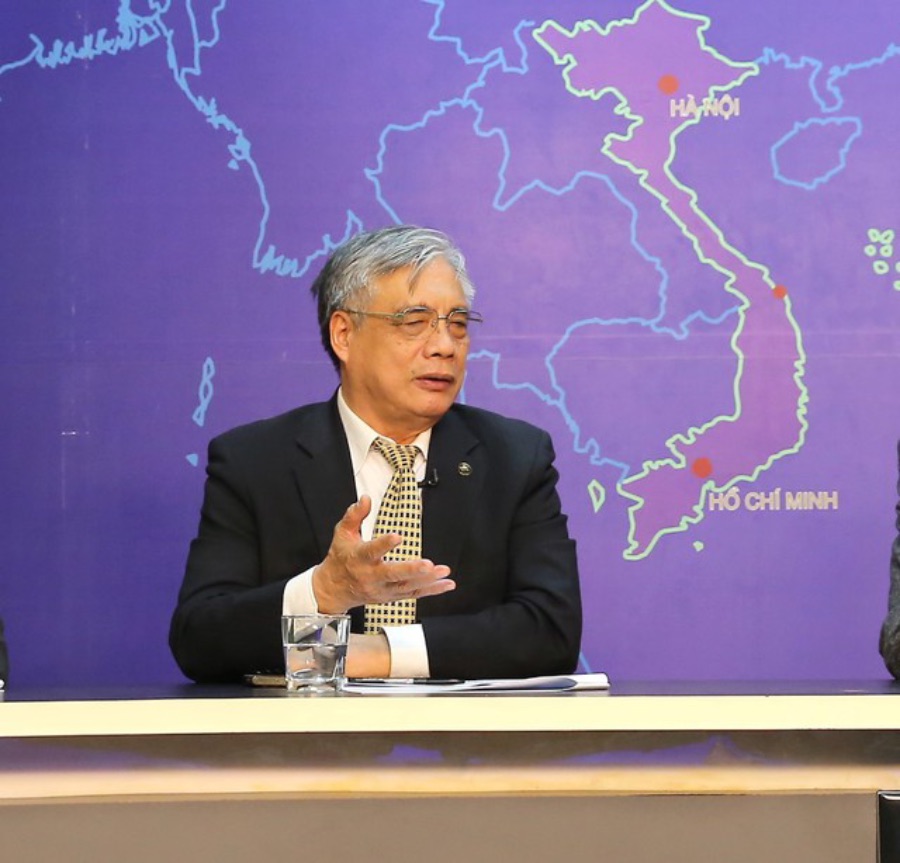
Assoc. Prof. Dr. Tran Dinh Thien: A very practical question. The starting point of the new era is currently determined to be the 14th National Party Congress; this has a positioning value. It is a milestone event. I think this is a choice of a landmark nature to distinguish. It is not that when we get there we will actually do it, on January 1 we will start doing it; not exactly like that. However, to clarify this, I return to the opinions of the guests talking about the concept of a new era. A new era is always characterized by its characteristics and features. It shapes a portrait of the era for us to enter. But our new era has something different, that is, an "era of rising up", that is, an era of action, a very strong action nature. Dr. Nguyen Van Dang explained why the word "rising up" is used here. It affirms that we are not here to shape a portrait of the era we will enter, but this is an era in which we will act, "stretching" unusually. We do not follow the usual as in the past, but we "stretch". The country has risen before, but we will have unusual actions to achieve unusual goals.
Here, the new era is defined by unusual goals. A country with an average income level, not yet highly developed, but sets goals on digital transformation, intelligence, green development... the highest goals of humanity. Then the way of posing the problem is based on creative intelligence, intelligence. Those are very high things. And so it requires us to be truly an era of unusual action.
It can be said that since we have issued that message, it means that we have already started to act, not that we have just started at that point. However, striving for something so beautiful is certainly very difficult. If it is very difficult, we must prepare. Choosing the 14th Congress as the milestone has such meaning.
The question is how do we continue to prepare? That is very important. Because if we do not prepare fully in terms of thinking, attitude, conditions, and resources, we may turn that message into a dream, a fantasy, and if we do not act enough, it may turn into paranoia. We must put the problem in a strict and logical way. So what should we do?
Perhaps the 14th Party Congress is associated with another milestone. That is the 40 years of our renovation, achieving great achievements, unprecedented achievements. Among them, there is a very meaningful achievement for us to continue, which is that we have chosen the development trend and the things that cannot be achieved. That is, we affirm the correctness of the path and it is the correctness that guarantees the achievements.
Now how do we continue that? 40 years is enough for us to discover ourselves. Assoc. Prof. Dao Duy Quat said "overcoming ourselves", meaning we discover ourselves, our strength, our momentum, our position at that moment, but is it enough for a leap into the future? Perhaps there is still a lot missing.
Second, 40 years also show that there are many problems to be solved, many outstanding problems, many weaknesses and even bottlenecks of bottlenecks, not just ordinary bottlenecks. We say "three bottlenecks" but now among those three bottlenecks, there is "the bottleneck of bottlenecks". That is, we have identified the key problem that we must overcome and if we do not overcome it, there will be no era, no growth. I think that preparing mentally for the 14th Congress is preparing for such things, that is, a vision, a development mindset, positioning ourselves correctly, facing a future whose major outlines we have determined. These are the ideas of the General Secretary, of the Party and the State that are currently implementing many aspects to clarify and prepare for such a transition.
What is the General Secretary's guiding logic in this matter? I see two lines of problem.
The first is how to pose the question of how we must overcome ourselves, overcome the present, and the second is how we must create a new portrait of ourselves that is completely different? Escaping the old does not necessarily mean you will have the new. And escaping the old is difficult, not easy at all. We know how difficult it is to abandon the mechanism of asking and giving, there is still a lot, it is still very heavy. If we cannot abandon that, there will be nothing new to replace it. For example. Here is overcoming the old and creating the new. The recent Resolution 57 related to science and technology is to imagine the future, to imagine what we need to do. What kind of institutional structure is for science and technology, for innovation, for digital society, green society? Those two things are things that need to be prepared from now so that the structural framework, the institutional framework for operation can overcome the old and build the new.
Second, when delivering those messages, the General Secretary linked it to the story of digital transformation. The productive forces raise the issue of production relations, production methods, and the first thing, the first thing to launch is the story of change, which is the State institution, which is the State apparatus. From the State apparatus comes people, not vice versa. For a long time, we seem to have focused on individuals in the sense of selecting people more than changing the organizational structure. Currently, it is the apparatus first, the State mechanism first. I think that is a matter of escaping from oneself, taking the lead and then we will remove it. That is a model for the development of society, in line with Marx's logic: "Productive forces determine production relations", or the so-called superstructure. Now we must handle the problem according to a reverse logic, from the State structure down to consolidating new production relations and promoting productive forces. I think that logic is very correct. The way of posing the issue of handling the organizational apparatus as preparation for the 14th Congress is very special, important and meaningful. It is a huge challenge but it creates inspiration right here. I think the strongest inspiration is right here. It is currently taking place successfully because it creates trust, resonance and strong national consensus.
I will mention Resolution 57 again as a symbol, that is, to discuss stories linking national and international commitments. We are committed to becoming a zero-emission and carbon-free country by 2050, then becoming a digitally transformed country, a digital society, a digital economy, a digital State. Then becoming an entity or a powerful semiconductor and AI force. We are setting such a goal. What should we do? For the past few years, we have been implementing everything, from the overall infrastructure system, hard infrastructure, soft infrastructure, and human resources for the future. Those two sides are being actively implemented to shape an Action Strategy by 2024. I think that is a strategy to jump into the future, to take extraordinary actions as we have determined: The new era is the era of extraordinary actions.
09:42 December 27, 2024
TS.
I think Associate Professor, Dr. Tran Dinh Thien has a very good idea that preparing for the upcoming National Party Congress is considered the starting point for entering a new era. Because the Party Congress is legitimized into a Resolution, into major policies and the things we promote are prepared from now. We have faith that what we are doing now is on the right track. We surpass ourselves and the most important thing is to reform the apparatus. Speaking of institutions, the apparatus is the most important. Institutions include institutions, the law is the operating system of those institutions. Reforming the apparatus is touching the system first.
The new Resolution of the Politburo on the development of science and technology and the country's digital transformation is following the trend of the times, in the direction of promoting competitive advantages. One of our biggest competitive advantages is the "brain" of the Vietnamese people, the thinking of the Vietnamese people. With this revolution, we are both following the right direction of the times and promoting the strengths of the Vietnamese people. For the 4th revolution, the digital revolution and artificial intelligence, we are catching up with the direction of the times. We do not miss a beat and we follow a model that Vietnam can promote its strengths. That is the model of a creative and developing State. The Party and the State lead, not the market. That is the foundation for us to have a lot of hope.
The contents related to the new era from the beginning of the discussion were analyzed quite thoroughly and multi-dimensionally by the guests. Professor, Dr. Vu Minh Khuong, from your observations, with the lessons of success and failure of countries, with the current international and regional context, how do you evaluate the messages and orientations of General Secretary To Lam? In your opinion, what are the outstanding development highlights in this term?
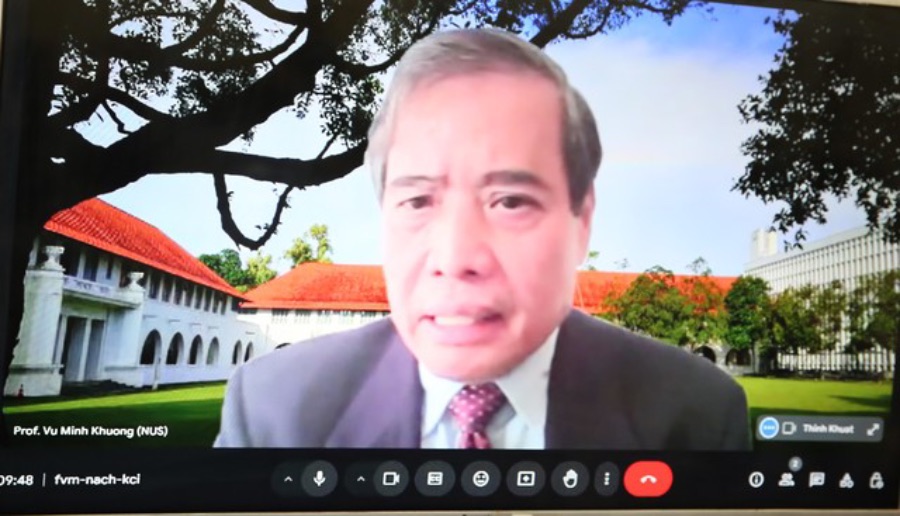
Prof. Dr. Vu Minh Khuong: The opinions presented are very comprehensive and sharp. From Singapore, I would like to share my own thoughts. That is the message of General Secretary To Lam, which is both strategic and groundbreaking. Strategy is the courageous choice to bring the country forward at an exceptionally high level in the coming time. Obviously, tomorrow we must look back at what we have done today. The leader's choice is very important, deciding whether a nation will go up or down, how fast or how far it will go... the right decision must be made. A wrong decision will lead to going down and going down quickly and far. That is the reality of research from human history as well as our recent practice. The strategic nature of the message of General Secretary To Lam and the leaders of the Party and State of Vietnam in the recent time is very precious, there are some very magnificent things. In Singapore, we appreciate it very much.
Second is the breakthrough: I find the three attributes of breakthrough very good. The first is to appeal to people's emotions, to make people's hearts rise up. I see that for the first time, the Vietnamese people seem to have found their "magic crossbow", which is the national spirit of all people as one. The second point is that we grasp the trend of the times. The times move fast and we grasp it very quickly, like going with the wind. The third attribute of breakthrough is to choose institutions, to create resonance strength, endogenous strength, the more you fight, the stronger you get, the more you fight, the more you win. That is the spirit of Dien Bien Phu.
The General Secretary's message is very clear. The highlight of the General Secretary's message is not only the content but also the actions. The General Secretary's phone call with the Prime Minister of Singapore last week was very impressive. The Singaporean leaders highly appreciated and invited the General Secretary to visit Singapore as soon as possible. Or the General Secretary's visits to other countries demonstrate a leader who is for the people and the country, striving to open a new era. Vietnamese people living far away from the Fatherland like me feel extremely proud and have faith.
There are four characteristics that lead a nation to success: First of all, national emotion. Talking about the new era, I would like to choose December 1st when the General Secretary spoke at the National Conference to disseminate and summarize the implementation of Resolution No. 18/NQ-TU directly to 14,500 points of contact and 1.3 million cadres and party members in attendance. This is a great message from Vietnam. This is also a great story, a milestone for history and future generations to record.
Next is enlightenment. Reforms in all countries value enlightenment and grasp the trend of the times. I really hope that one day, Vietnam will become the center, a beacon for the world to learn from.
The third point we are discussing to move forward is reforming the building of an elite public administration.
The fourth point is creation. by concrete actions. For example, the opening of the metro line in Ho Chi Minh City created an exciting atmosphere among the people. Each such project is a priceless education, we invest in education through concrete actions, through concrete projects.
I would like to emphasize the word "strive". "Stretch" reminds me of the image of Saint Giong and is related to Saint Giong's three points. First, we must seek talented people, go beyond conventional thinking, and think innovatively; second, we must rely on the people; third, we must rely on the young generation. Vietnam's practicality in the next two decades is completely achievable, because we have a very good position and potential. Vietnam is quite well prepared to enter this process. However, it is not simple because there are many problems we have to overcome. When implementing drastic reforms, we need to pay more attention to output and results than supply. The criteria are very clear, whether people's hearts increase, labor productivity increases, the environment is cleaner... all must measure the output results for the nation to prosper, towards the 2045 milestone. These are things we can measure for comparison. An example that I find very interesting is the inclusion of Nguyen Xuan Son in the Vietnam national team. That makes people feel responsible for their homeland and country and also strive to learn from good people. Just like we invite foreign investors to Vietnam to resonate more in the context of each specific field.
10:01 December 27, 2024
Dr. Nguyen Si Dung: Professor Vu Minh Khuong has given a very inspiring message, as well as very good and interesting issues. In essence, the General Secretary's message and vision about the era of national development, according to Professor Khuong, have achieved several things.
The first is inspiration, called the inspirational capacity of the whole nation, the emotions of the nation. I think this assessment is correct. Perhaps we sitting here in our hearts are also excited when our nation reaches the era of rising up.
Next is to keep up with the times, step with the times. We are moving with the times. If everyone in the world uses Gemini, ChatGPT, we all have it on our phones.
I also intend to talk about the image of Saint Giong. It is true that there are many messages associated with the image of Saint Giong. To rise up is to rise up like Saint Giong, that is in the culture, in the miracle of our nation, is a message. The second idea that Professor Khuong also sent through the image of Saint Giong is to trust the young generation, those who give phones or software can do it right away, not just instructing for a few hours and not being able to do it. Saint Giong is very young, so trusting the young generation is very important. The third idea is the support and contribution of the people. Now if we just rely on public investment, it is really difficult, our budget is limited. To raise Saint Giong, all the villagers must contribute rice.
Obviously, if we want to accelerate the breakthrough in the new era, the leadership role of the Party is of paramount importance. Since the founding of the Party until now, we have seen that the role of the Party is very important, from innovation to decisions associated with the development of the Party. However, revolutionary practice shows that each new stage also poses new requirements. May I ask Associate Professor, Dr. Dao Duy Quat, what issues and demands are posed by the rising era for the Party in innovating leadership methods, improving leadership capacity, governance, and fighting strength, ensuring that the Party is the great helmsman, truly the intellectual core in the leadership and governance apparatus?
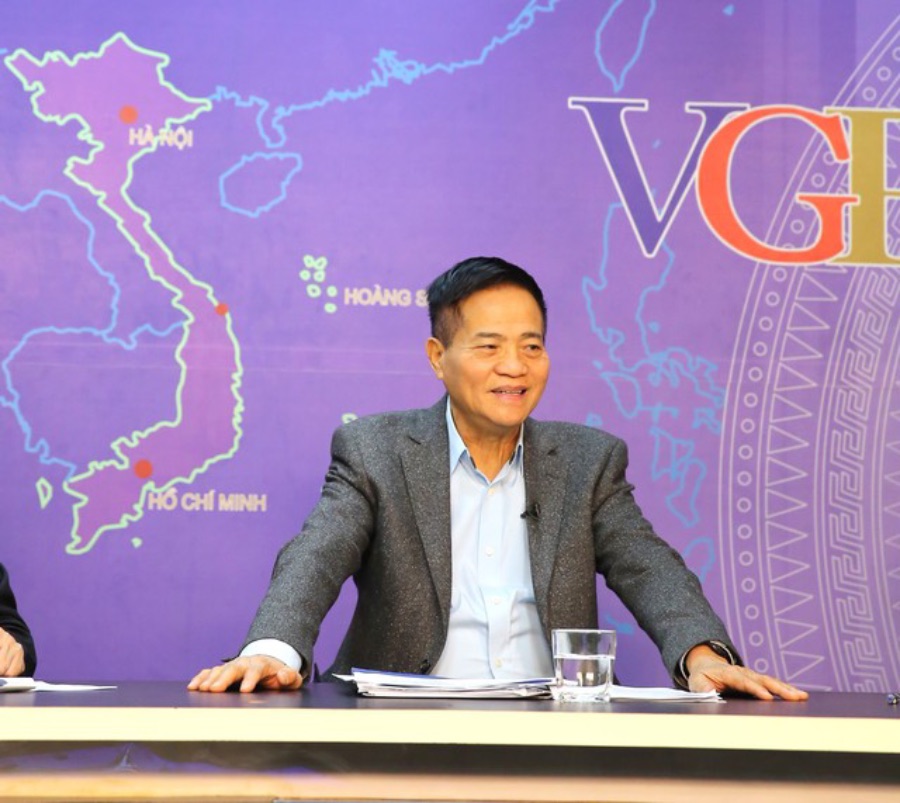
Assoc. Prof. Dr. Dao Duy Quat: In the past 94 years of history, it has been affirmed that the correct and wise leadership of the Party is the decisive factor in all victories of the revolution. I want to emphasize "correct and accurate leadership" rather than general leadership. The way Dr. Nguyen Si Dung poses the problem is very important, this is a vital issue. It is true that all the aspirations of the whole nation to rise up to achieve the historical goal by 2045, the factor that must be of primary concern is that our Party must rise up, build itself and rectify itself to truly become a Party of intelligence, a Party of morality, a Party closely attached to the people and the nation. Recently, General Secretary To Lam also emphasized very carefully that Party building and rectification is a key task while placing the task of economic development at the center. We all know that Party building must be political, ideological, ethical, organizational, and cadre-based; the Party must be strong in all areas.
If the Party is strong politically, it means it makes the right decisions and organizes implementation well, it will have the power to persuade and create consensus within the entire Party and among the entire people, gathering the strength of the entire nation.
Building the Party in terms of ethics means truly being an example of ethics, diligence, thrift, integrity, impartiality, and selflessness.
At present, the cause of all causes is the Party's leadership in the organization and apparatus of cadres, the Party's unified leadership of cadres. We see that the 13th term has dealt with many cadres and party members at all levels, including key cadres who violated discipline and had to be dealt with. Secondly, in the past, people were used to arrange work, so the apparatus kept expanding. Every time there was a call to streamline the payroll, it was "increased the dining room seats", increasing more and more. Clearly, the top priority is that the Party must rectify itself drastically and synchronously to truly become a political staff, an intellectual and civilized one as Uncle Ho said.
First of all, in the cause of Party building, this time we must carry out all of those tasks synchronously, implement Resolution XII on Party building and rectification and the conclusion of the 13th Central Committee on this matter. The Party must renew its leadership method, it cannot lead in the old way anymore, because the situation is new, the requirements are new, the aspirations are very high, the goals and tasks are very large and the leadership object is also at a very new level and has very different conditions. Now if we do not renew our leadership method, we still make excuses, still do things for others, are lax, still unconvincing and not be an example, we cannot lead the nation to rise in the new era.
The very big issue that is being urgently raised today along with the process of "running and lining up" to reform the apparatus, we must also do very drastically and urgently to innovate the leadership method of each Party Committee, of each Secretary to each Party member, each Party organization. The leadership method is the basic method, the basic principle that determines the leadership method is that the Party leads by deciding on the platform, guidelines, and policies. After deciding, we must persuade and set an example of implementation. The Party leads by inspecting the political system in organizing the implementation of the guidelines, the Party does not do it for us. After deciding and persuading people to agree, voluntarily and voluntarily implement, the Party must lead the system of state agencies to institutionalize that resolution by laws, decrees, and policy mechanisms.
And a very important leadership method is persuasion and setting an example. Currently, if we want to lead so that the entire Party has one will and the entire people are in agreement with the enormous task of rising up in the new era, then in my opinion, we must innovate the method of ideological leadership. We must truly grasp the thoughts, feelings, and specific concerns of each sector, each cadre, party member, and the people. The General Secretary said that right from the time the Party issued a resolution, it must be very concise, clear about the problem to be done, clear about the meaning, and clear about how to do it. And when communicating, the communicator must clearly state both thoughts and feelings to convey emotions. We have a very large ideological system and ideological troops such as the system of political schools, the press and media system, and the system of reporters. If we really have quality, know how to inspire, and especially every party member knows how to persuade and set an example for the masses, then I think the innovation of the method will be effective.
Currently, streamlining the apparatus is a revolution, but I always emphasize that this streamlined apparatus cannot be mechanical. I strongly agree that we should not mechanically reduce how much we can, but must truly organize a ministry, a department, a division reasonably, in accordance with current reality and have an effective operating mechanism. In my opinion, reducing units is just a mechanical way. We need to focus on leadership methods so that we can streamline scientifically, to have an apparatus with a smooth operating mechanism, not to have units that lead to many levels, hindering localities, levels, and businesses.
The second idea is streamlining, especially streamlining the human apparatus. The most worrying thing now is that talented and good people may leave and lazy and incompetent people remain. In his speech, the General Secretary mentioned a few lines of Lenin: "I am willing to exchange dozens of arrogant Bolsheviks for one bourgeois expert."
I strongly agree with Mr. Vu Minh Khuong and Mr. Nguyen Si Dung. It is true that in the current era of Industry 4.0, a lot of technological talent is required, so the leaders of this force do not necessarily have to be party members, intellectuals, or patriots. In the organization of the cadre apparatus in some fields, including science education, it is necessary to go up to the department level, so the apparatus cannot attract talent. Even the ideological sector, ideological work is also a profession, a science, so it must be trained. Uncle Ho previously gathered many talented people who were not party members but contributed to building a developed state, overcoming challenges, and achieving feats.
I want to say again, the current focus is that this Party must renew and rectify itself, must rise to be worthy of leading a nation, to realize its aspirations. Renew and rectify itself in terms of politics, ideology, ethics, organization and cadres. Above all, it must renew the leadership method, issue resolutions that are accurate, correct and easy to understand. When communicating and implementing, they must reach people's hearts. Second, the leadership method regarding cadres is a science, the apparatus must be streamlined but operate smoothly, effectively and efficiently. Finally, when choosing people, take the tasks and work of each position to choose people with virtue and talent to meet the task, not even necessarily having to be Party members.
10:20 December 27, 2024
Dr. Nguyen Si Dung: Associate Professor Dao Duy Quat raised a very profound issue. In short, we must innovate the Party's leadership, especially the leadership method, in which the Party does not replace us, but leads by platforms, guidelines, lines and major policies. And importantly, supervision and inspection. If we want to lead attractively and convincingly, we must be exemplary in ethics and have the skills to persuade, not just give orders.
In addition, it is clear that to lead, we must concentrate talented people in the Party. I think that if the Party decides on policies and guidelines, the talented people in the Party must be talented politicians, people with the right vision, who know how to set priorities for the nation, and promote policies that will bring about the strong rise of the nation. Those people should be in the Party leadership apparatus.
Obviously, there are positions that require technocrats. Policies must come from Party leaders, and policy implementation must come from technocrats, and technocrats must be specialized and competent. For example, AI and the Internet of Things are very difficult to assign to people to give general guidelines, they must be experts in that field. Personnel work is moving in that direction.
The issue of human resources and the work of organizing cadres is always a decisive factor. Currently, all levels and sectors are summarizing Resolution No. 18-NQ/TW of the 12th Party Central Committee on "Some issues on continuing to innovate and reorganize the apparatus of the political system to be streamlined, effective and efficient"; promoting the arrangement and implementation of the streamlining of the apparatus in accordance with the direction of the Central Committee. Dear Dr. Nguyen Van Dang, what is the strategic significance of these activities in ensuring the effectiveness, efficiency, and effectiveness of the operation, direction, and administration of the state administrative apparatus so that the country can take off and move forward steadily in the era of development? What are the things to note?
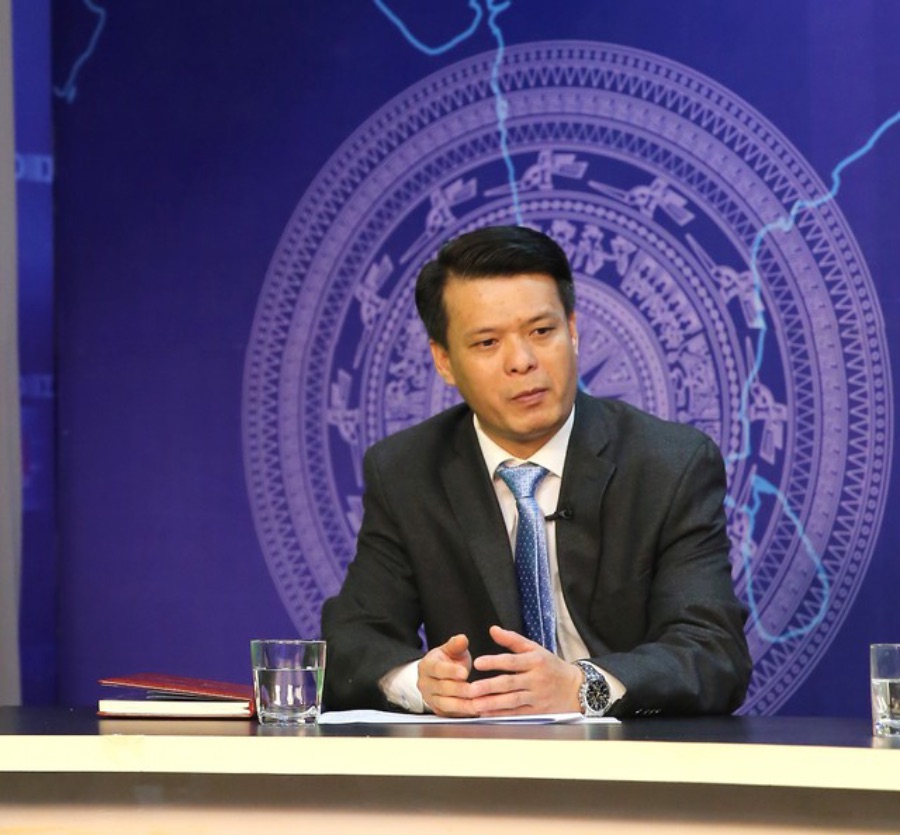
Dr. Nguyen Van Dang: An event that is taking place very fiercely across the country is the revolution of streamlining the apparatus. It is very meaningful and must be placed in the innovation of the Party's leadership method. I would like to have a few more opinions related to the innovation of the Party's leadership method.
This is the requirement that the Party set out in the recent congress. However, recently, we have seen signs of real innovation taking place and helping to raise the Party's prestige in society very clearly. For example, in 2024, people passed on to each other or commented in support of the statements of the late General Secretary Nguyen Phu Trong such as "Honor is the most sacred thing". When the highest leader of the Party makes such a statement, it will inspire each Party member to realize that: Unlike ordinary people who work for their own benefit, cadres in the political system in general, especially the public apparatus, work to serve the interests of others, so they cannot let personal interests dominate, and must uphold honor. Or recently, General Secretary To Lam mentioned the phrase "new era", "era of national rise" which was also very well supported by the people. In fact, the spirit of breakthrough development was recorded in the 13th Congress document on "awakening the desire for development". But when General Secretary To Lam changed it to a newer phrase, "a new era, an era of national growth", it was clearly more convincing and received more attention from the people. Although it was just a statement, it showed new features in the Party's leadership role.
Innovation in the Party's leadership method in this new situation is clearly a very urgent requirement. When we carried out the August Revolution, the social forces and social characteristics were different. When we carried out the Renovation, the context was also different. Now that we are moving towards a new era, it is clear that the domestic and international context as well as social characteristics are completely different from before.
To innovate the Party's leadership method in the new situation, I also agree with some opinions of Professor Vu Minh Khuong. I emphasize that what we need to pay attention to is that the Party must always grasp the trends of the times, demonstrated through the progress of the Party's awareness, demonstrated through the leadership policy that inspires the forces in society, and the second is that it must be transformed into drastic actions from the highest leadership level to the grassroots level. If these three components can be combined, the Party will certainly innovate its leadership method in the current new situation.
One of the new features in the Party's leadership role that we are witnessing and that the people and Party members strongly support is that we are resolutely carrying out a rapid revolution related to streamlining the apparatus of the political system. The plan has been issued by the Central Steering Committee and is currently being vigorously implemented by agencies nationwide, especially the Central agencies. The Central takes the lead, sets an example, "runs and lines up at the same time", and localities just do it, without waiting for the Central. We are showing an extremely strong movement. The Vietnamese political system is inspiring change in Vietnam in a more positive direction.
Obviously, the Party is doing very well the leadership role, proposing leadership. Specifically, by 2045, bringing Vietnam to a developed country.
Among many forces, among many means and tools, the first is the political system. Because the political system is where leadership policies are proposed, policies are planned and implemented. All of these activities are the political system. These will affect other forces in society and can transform national resources into concrete results related to the leadership vision to 2045.
The current apparatus streamlining revolution that we are doing is very fast, although there are also concerns that we are not just doing mechanical streamlining. That is very true. But that is the organizational unit, the first thing we have done. In Resolution 18 issued in 2017 as well as in recent directive documents, it is clear that we are not doing mechanical things. This time, we are streamlining the apparatus organization, the people, the mechanisms and operating principles. That is why in the speech of General Secretary To Lam, it is clearly stated that the Party avoids making excuses and doing things on behalf of others. Then, we do not loosen our leadership role, which does not mean letting Party agencies encroach too deeply on state agencies. This is an issue that the Party leader has stated very clearly. Therefore, to successfully carry out this apparatus streamlining revolution, the whole system is making efforts and I believe that there is a basis for us to expect success in the coming time. And as Professor. Vu Minh Khuong said, it is not simply about the input, the problem is how the output is, how it is expressed in social impact, the quality of the political system's operations, especially the system of public agencies, has it really changed, has it really aroused the development aspirations of the development forces in society to contribute to the development process of the country? That is what we expect, not simply seeing the apparatus shrink, the number of personnel reduced. What we expect is how the output impact is, whether it really becomes the driving force for the country's development or not.
Obviously, there needs to be a process here. First of all, we do the easy things first. As for the quality of the political system, we need a roadmap and it is not that we will finish this revolution. It is a process that must be carried out regularly. For example, related to administrative reform, decentralization, etc., these are processes that we must do regularly and continue. The need to reform and innovate the system of public agencies or more broadly, the political system is a regular need and that political system must adapt to the changes of the social context in each different stage.
I would like to share with the guests that it is not simply about the organizational structure but the important thing of the system is the quality of human resources. When the apparatus is streamlined, how will people be arranged into the new agencies and organizational systems? Resolution 18 has stated since 2017 that we must aim to arrange people according to their abilities. Many people talk about talented people; in fact, talented people are a broad concept and in reality, in the political system, we must distinguish many different groups of talented people. Having political leadership talent, political leaders must certainly have the ability to inspire people in the political system as well as in society. Talent in policy planning and implementation must be technocrats, must have specialized knowledge in a field. Clearly, how do we distinguish talented people, in which fields, at the central and local levels? Looking back at the success stories of countries in the East Asian region, it is clear that high-quality human resources in the public sector play a very important role. In Singapore, their meritocracy is very effective and recognized by the world. Then there is Japan’s highly talented specialized civil service system. These are all countries we can learn from.
The decisive factor for success in this revolution of streamlining the apparatus is not only streamlining the apparatus. That is only a necessary condition, a streamlined organization. But the sufficient condition is to select and rearrange the right people, the right jobs, and their abilities. We must also focus on attracting talent in the public agency system, from leadership talent to professional administrative talent. I emphasize the role of the human factor because the political system in Vietnam is a centralized and unified power system. It is not like the systems in other countries. The institutional system can operate on its own, but in the end, it is still the human factor. If the human force does not meet the requirements, and with a centralized and unified power system, the main danger is to let personal and group interests dominate and take advantage of the political system to serve their short-sighted interests, leading to harming the interests of the nation and people.
10:34 December 27, 2024
Dr. Nguyen Si Dung: When merging two machines, the functions of the machines must still be guaranteed. This is a planned task, not a mechanical cut. Of course, there are also problems and challenges in choosing the right person.
I would like to add one more idea: In fact, many people say that there must be a process and steps, but practical experience shows that many things we discuss a lot but still cannot decide. Therefore, it is very necessary to make a decision when it is at the ripe stage, when it is too urgent. After that, we can adjust but the price is the loss of an opportunity that cannot be recovered, that is a waste.
Second, streamlining the apparatus is associated with handling bottlenecks of bottlenecks. When there are many people doing what but it is unclear who is doing what, there will be congestion, one person blames the other or one person thinks it is the responsibility of the other.
Third, we want to choose talented people, but when the apparatus is full, how can we choose and arrange talented people? I think this is the third reason that must be resolutely addressed.
Regarding the fourth reason, the General Secretary also stated that if 70% of the budget is spent on the apparatus, how can there be any money left for investment and development? In my opinion, entering the new era, without infrastructure, we cannot take off. For example, if we do not have a nuclear power plant soon, how can large data centers and artificial intelligence operate? Therefore, we must save as much as possible to invest in infrastructure, to take off in development. You do not have a runway, you cannot take off on a swampy field.
Of the three biggest bottlenecks today, namely institutions, infrastructure and human resources, institutions are the "bottleneck" of "bottlenecks" that need to be focused on solving. Dear Associate Professor, Dr. Tran Dinh Thien, how should we change our thinking in law-making to untie this knot in the direction of both ensuring state management requirements and encouraging innovation, liberating all productive forces, unlocking all resources for development, and not missing out on opportunities for development in the new period?
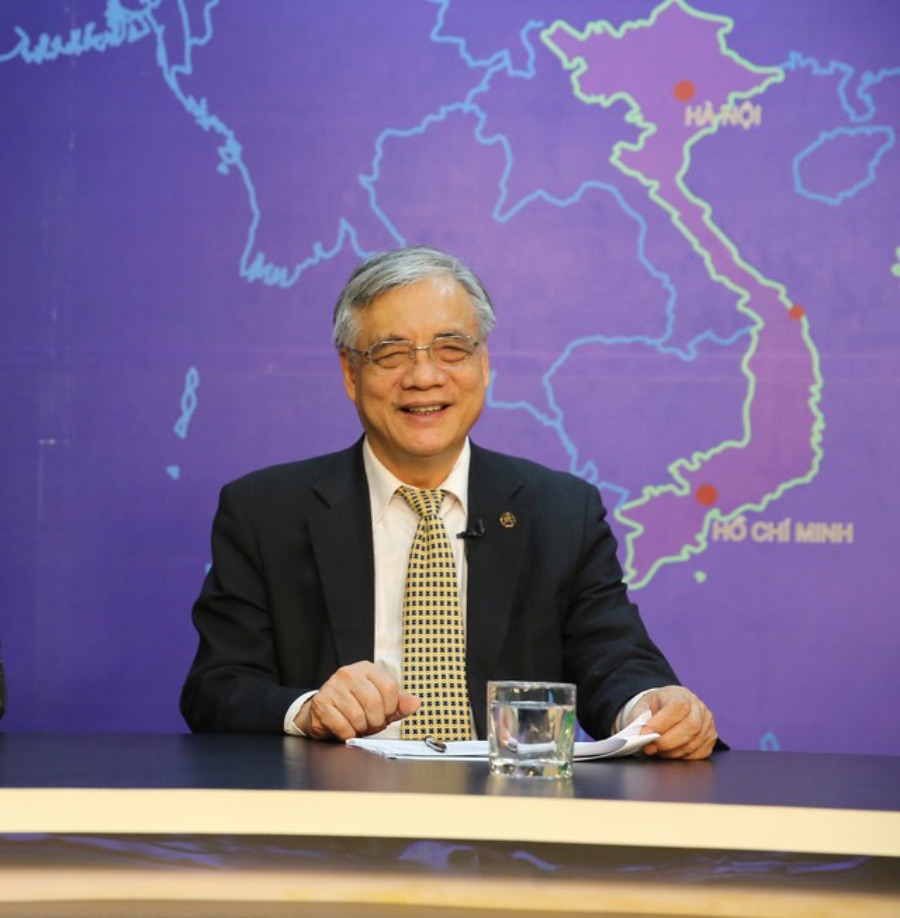
Assoc. Prof. Dr. Tran Dinh Thien: The bottleneck of bottlenecks is the institution. However, I think that stopping there is not enough and the question is how to change the mindset for this approach?
If the apparatus arrangement is not placed in the general trend, with the organizational function and the modern tasks that the apparatus must solve, the apparatus arrangement will not meet the requirements as you said. It will only solve the mechanical problem of the apparatus instead of having a truly effective and efficient apparatus.
Why do I say that? For example, when talking about institutional bottlenecks, we have long identified three bottlenecks. The difference now is that it is the bottleneck of bottlenecks. If this bottleneck is not resolved, the other bottlenecks cannot be resolved. That is, the first clear, the clear that is most important for the economy and society. Therefore, clear means there are no bottlenecks, and the bottleneck of the economy is concentrated in the institutions. Resources that are not clear are due to the institutions. People who are not clear also start from the institutions…
I think the good thing, the first breakthrough in thinking is to identify the bottleneck of that bottleneck, must focus highly on solving this bottleneck and cannot speak in general.
So we see clearly, for example, the land story, the state apparatus must rely on the land market to solve the problem, then, the organization of the apparatus must be designed in that spirit.
I think that we must respect market principles, build institutions according to market demands and serve the market, then we can free up resources.
Our approach is to promote intelligence and talent, but if an economy lacks competition, discriminates between business sectors, and the mechanism of asking and giving still prevails, how can we promote creative intelligence?
This raises the issue of institutional liberation. There is a key point that local authorities decide, local authorities do, local authorities are responsible. This is a message about empowering to be proactive in creativity, not to act on one's own initiative, but empowering subjects to be proactive in creativity. Empowerment is linked to responsibility, then people will act in accordance with the law.
The second point I want to make is to change the mindset towards empowering creativity.
Third, we must follow the trend of the times, towards the future. For example, the Labor Law, in our era, is rapidly moving towards the knowledge age, the high-tech age, the era of innovation and creativity, which means that the knowledge force will be the force that determines development. Therefore, we see that the approach of the law to liberate the force is towards the future, this is the orientation of thinking to remove bottlenecks.
If we only focus on improving and adjusting, that is, removing current bottlenecks, it is not enough and will even encounter extremely large bottlenecks in the future when the speed of competition requires us to not hesitate. If we do not prepare capacity and conditions, we will lose opportunities. The opportunity cost will be very large.
10:47 December 27, 2024
Dr. Nguyen Si Dung: I agree with Associate Professor, Dr. Tran Dinh Thien. This is ultimately very much related to the legal system. Law is the operating system. The behavior of the apparatus, the behavior of civil servants, and the behavior of organizations are all regulated by law. Low-quality laws will clog the system, and an outdated operating system will not meet the needs. I agree with the principles of innovative thinking that Associate Professor, Dr. Tran Dinh Thien has proposed.
First, the law must follow market rules, not be arbitrary. That is a very important mindset.
Second, the law must be set for the future. Adjusting in the present without paying attention to the future will limit the opportunities of our children in the future. Innovation in thinking and freedom are intrinsic values, absolute values. Adjustment is a necessity, law is a necessity. Without freedom, there is no market mechanism, no innovation, no breakthroughs. But endless freedom, absolute freedom will give birth to anarchy, give birth to instability. Therefore, if we adjust, the adjustment ensures stability, ensures order, but if we abuse the adjustment, promulgate too many laws, it will tie the hands and feet of the entire institution, of the people, the cost of compliance will be terribly large, and will lead to business not being easy anymore.
The first mindset that I think must exist in legislative activities is to balance freedom and regulation. We must consider that laws are really needed before enacting them, and not consider enacting many laws as an achievement that ties up the opportunities and potentials of this country. That is a mindset that I think is comprehensive. We must operate institutions to ensure that balance. The government submits them, the National Assembly reviews them. If the National Assembly finds them inappropriate, it does not pass them. Such institutions ensure the balance between freedom and regulation.
The second way of thinking is very close to the viewpoint of Associate Professor, Dr. Tran Dinh Thien, that is, only intervene in the market where the market fails, and wanting to be the master of everything will be very unstable, interfering in civil relations is not advisable, civil relations are relations between people, civil law stipulates that, then to operate civil law, we should not intervene, intervene moderately.
Third, General Secretary To Lam has made it very clear that we must abandon the mindset of banning if we can't manage it, because that narrows the space for people and businesses. If "you" can't manage it, then the problem is "yours", like now, we have to streamline and simplify. This is the digital age, the national population data that the Ministry of Public Security has created is a great achievement. Verification is a matter of a blink of an eye, why is it so overlapping? Obviously, "you" have the tools to solve it, we should not have the mindset of banning if we can't manage it.
Times change very quickly, now with artificial intelligence, if there is no Sandbox regulation for testing, the country will lose a huge opportunity, especially in areas that require creativity.
May I ask Associate Professor, Dr. Dao Duy Quat, currently, our Party has identified that promoting waste prevention and control is a focus in Party and political system rectification, on par with preventing and fighting corruption and negativity. Entering a new stage, a new era, what are the requirements and issues for this work and how do we need to reorient our activities and the entire system in the coming time, sir?
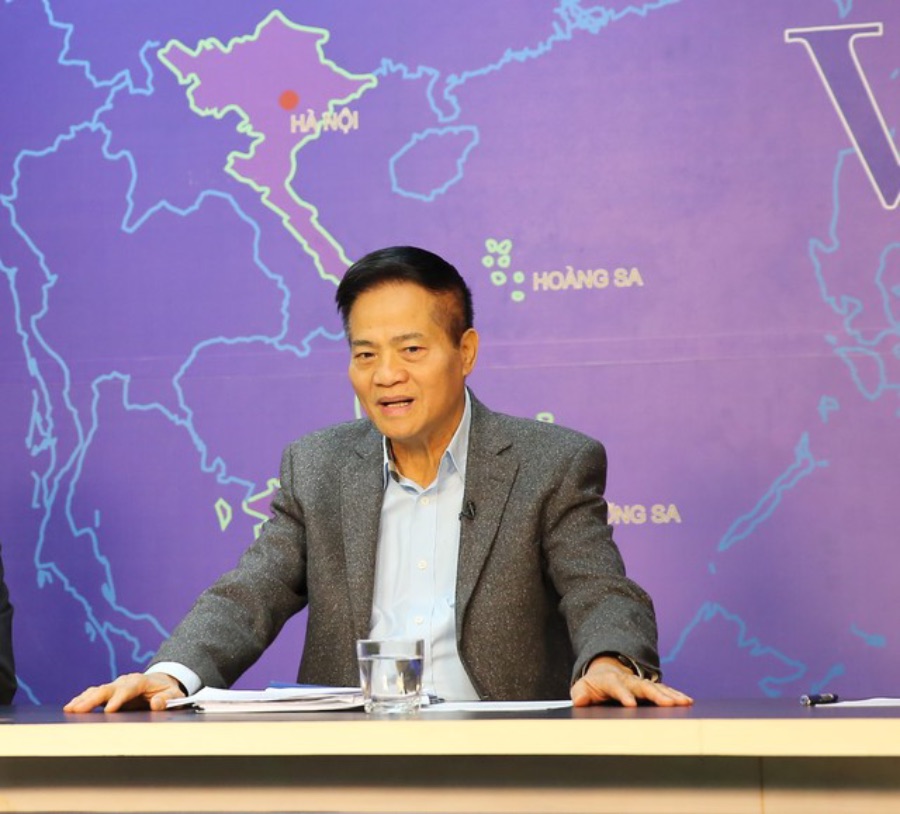
Assoc. Prof. Dr. Dao Duy Quat: General Secretary To Lam has written a separate article on this issue. When our Party gained power, President Ho Chi Minh issued a series of messages and launched a movement to compete in thrift, fight waste, and develop production in the cause of both resistance and nation building. During the renovation period, our Party, the Central Executive Committee, the Politburo, and the Secretariat also issued a series of resolutions, directives, and regulations on this issue. Comrade To Lam, in his article, also said that practicing thrift and fighting waste over the past 40 years has greatly contributed to our great achievements in terms of economy, society, security, national defense, and foreign affairs. But he also looked straight at the truth and made an observation: but now, when we, our people, are preparing to enter a new period, waste is very common.
That is, there is a second aspect that is very common, in some places, very serious, and the comrade also said frankly that the consequences of not saving and wasting are more than corruption. Currently, everyone knows, the people are really upset, there are countless suspended projects, countless construction works such as Bach Mai 2 Hospital, Viet Duc 2 Hospital, and a series of industrial projects that were built and then abandoned, a series of apartment buildings and houses that were abandoned. That is a huge loss of resources, financial resources, and material resources of the country. Second, the even bigger loss is trust and especially the loss of human resources.
Therefore, entering this new period, to accelerate, to break through, to achieve very important goals. The goal by 2045 is not just to be a high-income developed country. The General Secretary wrote that it is to become a developed socialist country, rich people, strong country, democracy, equality, civilization, that is, at that time we have achieved the final stage of the transition period to socialism, not just a high-income developed country as the criteria of the International Monetary Fund (IMF), of the World Bank (WB). Therefore, in this cause, we not only develop the economy but especially solve social problems, especially so that everyone is prosperous, free, and happy.
I read Comrade To Lam's speech on education, we must move forward in this period, in this era where there are no more tuition fees, children of school age must have schools, and if there are students, there must be teachers. What are the State resources here? It requires a huge resource for economic development, for science and technology, for human resource training, for building infrastructure systems. Therefore, Comrade has set forth the campaign of thrift and anti-waste as a revolution. As Uncle Ho and General Secretary To Lam said, waste is an internal enemy, an internal enemy is extremely dangerous, so the entire Party, the entire people, the entire army must thoroughly understand the position and role of thrift and anti-waste and must take drastic actions by each individual, each agency, each unit, each level.
Comrade To Lam deeply understands the role and position of culture and he himself is also a person who really wants and has an aspiration for all people to enjoy cultural values such as music and painting. He said that there are ideological solutions, institutional solutions, regulations and standards, but he emphasized the cultural solution to completely overcome this, so that the value of living frugally and fighting waste becomes a cultural value in each person, especially in cadres and party members.
He said, a country and a people that are frugal and anti-wasteful are civilized. Therefore, we need to think and focus on anti-wastefulness, so that all people and the entire political system know how to be frugal and anti-wasteful. When there are institutions, regimes, standards and regulations, it is important to foster cultural values and frugal living as a standard and cultural symbol in each person, each cadre and party member.
11:01 December 27, 2024
Dr. Nguyen Si Dung: Thank you, Associate Professor Dao Duy Quat. You have analyzed very deeply. It is true that fighting waste must be a fierce battle, no different from fighting corruption. You specifically mentioned solutions on institutions, on discipline, on deterrence... Paying attention to both culture and ethics is very important. Because in fact, the loss due to waste is much larger than corruption. In Hanoi now, there are about 200 suspended projects, each project like that costs thousands of billions, terribly large. If the whole country, how much would it be? Wasting resources means wasting the part of future generations, of children and grandchildren. Third, there are things that corruption can recover but waste cannot, it is lost forever. Wasting opportunities is lost forever, wasting time is lost forever. Therefore, waste causes much greater loss.
May I ask Prof. Dr. Vu Minh Khuong, how do you evaluate the current policy of restructuring the apparatus with great political determination that the Party and State are strongly directing to implement in the spirit of "streamlining, operating effectively, efficiently and effectively". What are your and your colleagues' opinions and expectations about the implementation of this policy and what advice and recommendations do you have?
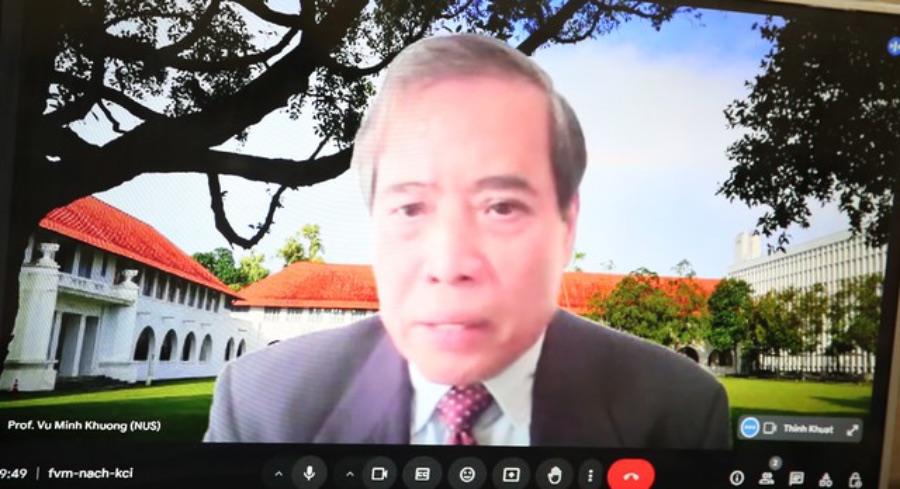
Prof. Dr. Vu Minh Khuong: I just add some issues of principle from an outside observer. First, to build a public apparatus that is efficient and effective, we should pay attention to three pillars. One is capacity, two is motivation, three is total force. If we let someone design the strategy, we will emphasize the total force factor first. Total force means one plus one equals 11, much larger. If we only revolve around capacity or motivation, which is very important, but there are overlapping factors, it will be difficult. Even total force here has a few points: It creates a very large resonance force and is also an endogenous force, the more we fight, the stronger it is, the more it spreads, the more enthusiastic it is, then it is good. But if there are only a few capable people or some high-salary, red-carpet-rolling people, but there is no total force, it is dead. Therefore, in designing a streamlined apparatus, we must pay close attention to the total force factor.
When discussing with colleagues here, I talked about three breakthroughs in Vietnam. We talk about institutions, infrastructure and human resources, but those in charge told us that we lack two. If these two are also breakthroughs, Vietnam can take off, otherwise, the other three pillars alone are not enough. The first breakthrough is that instead of renewing thinking, we must have a vision of what Vietnam will be like in 2045, what the apparatus will look like, what the legal system and public authority will be like? We need a great transformation from 2025 to 2045 to reach that goal. Otherwise, it is like instead of urgently building a subway system, we see traffic jams and just build overpasses, that is the solution. There are too many solutions in Vietnam. Solutions but why are they still so complicated? It is because of us. If we have shaped the future of our lives, it is very simple. Why don't we have to have any meetings here? Simply put, most of the time is spent on ourselves, to cultivate and improve ourselves, then we will have the ability. But the best people in Vietnam who go to meetings all the time will not be good. We need to pay attention to that. Therefore, we must have a vision for the future, we must plan very clearly what 2045 will be like and what we can do first, what we will do later; so that in 2045, when future generations look back, they will feel proud, grateful and admire that we have done something extraordinary. That is the first breakthrough, the vision for the future.
The second breakthrough is world integration. We are now integrating very well but still only revolve around bamboo diplomacy, then attracting investment and import and export. But we have not thought about learning the best experiences of the world. How is the legal system of Korea, Singapore, China, Japan... put it on the table for us. Are your new laws on bidding, land, public investment better? If they are much worse, then don't pass them and waste time. Whatever we do, we must leave it for our children and grandchildren to be proud of. World integration is even about selecting good, excellent people from abroad, implanting them in very specific parts to increase our global resonance. We will have excellent experts in AI, in football, in all the things that this nation can be proud of because it resonates strength. Sometimes, if certain qualities are lacking, it will not be possible. If these two factors have a breakthrough, Vietnam will be much more miraculous. At that time, Vietnam will not only be a rich and powerful socialist country but also an example for the world, countries will have to come to Vietnam to learn. That is endogenous development, the more you do, the stronger you become. If we just follow the mindset of borrowing aid, it is not good. Our country is 329,000 square kilometers, with a population of hundreds of millions, but we keep asking for help, making people wonder why. In the current international integration, we must be a nation that rises up, truly worthy of the world's pride. That is what future generations will look back on and will feel very emotional. Total strength lies here. The first point I want to emphasize is the total strength factor.
The second factor in building a public authority apparatus is to pay close attention to principles. The first principle is transparency and simplicity. I really like the example of Dr. Nguyen Si Dung, if everything requires people to certify. I have known the scene of asking for proof of receipt. Students applying for scholarships must certify that they are poor. That is, there is no management thinking but strict management. Therefore, it is necessary to be simple and transparent, once it is transparent, even relatives and acquaintances will not dare to include it. We should pay attention to international studies. For example, driving licenses. The motivation to renew a driving license is to collect more funds and show power, so there is no need. Just give it until the age of 65, only after the age of 65 do you have to have a health check. But anyone who violates must study again completely. That is, their policy only monitors those who violate. As for good people, everything is very simple. Therefore, people are much more aware.
Besides the big messages, there are small things to win people's hearts right away. Sometimes we rely too much on the law, which is not as good as the basic principles. A good solution satisfies three basic principles: First, is it beneficial to the people? Second, is it beneficial to the country? And third, does it increase the people's hearts, gain the trust of the people and the political system? If these three points are present, it will be resolved quickly. That's the principle. Reality is very rich, it is the truth, we have to rely on the truth. But we rely on this directive, that directive, that is management thinking, not governance. Governance means that by 2045, we will become a powerful country, a proud country, the Vietnamese people will stand shoulder to shoulder with the great powers.
I think the idea of General Secretary To Lam is very good: we must make worthy contributions to the world community, not just a rich people and a strong country. In fact, worthy contributions to the world are our gratitude to the world for helping us during the revolutionary wars as well as in economic development. This is a great value. I really like Singapore's definition: Our values are based on the world, considering values to make the world better. We must nurture this awareness in the people. A patriot is someone who makes Vietnam more valuable to the world, and is respected by the world. There needs to be clear value propositions in the future.
The third thing is relatively specific solutions. In my opinion, we should focus on the resonance factors. When choosing people, we need to pay attention to whether they are aware of the biggest challenges in the job. If they do not know what the challenges are, they will fail. Because if you do not know the crucial challenges, you will only seize opportunities, which are very short-term. But you must know the challenges, because when people know the challenges, they will go far. The second is to come up with strategic solutions, what are the ways to overcome them. And the third is to have policy priorities. I suggest that localities and ministries must let their leaders choose their personnel. Candidates must clearly show that they know their challenges if they are the director of this department or the chairman of that district. These are the 3 big challenges, these are the 7 solutions I have and if I can practice them, these are the things I will do. From there, we can see how they are supported. The good thing about Singapore is that they do not choose people from below, but people from above. In Singapore, they vote in reverse, meaning that superiors choose subordinates based on clearly documented criteria.
In personnel work, there is a problem I see that we have many inspection and examination systems, but our function is to handle and discipline. But the actual function of inspection and examination is valuable like this: Creating three lines of defense. The first line is to fence thoroughly; the second line is to warn; the third is to review regularly. Our inspection and examination are good, but we should have more warning functions so that before people commit crimes, before people "cross the line", they are warned. That way, people will naturally appreciate inspection and examination. That way, there will be less people committing crimes. Those are some of my opinions. Thank you!
11:17 December 27, 2024
Dr. Nguyen Si Dung: This is a process of rearranging the workforce, in terms of overall efficiency for society, it will be greater. We should think in that direction, it will be more correct and humane, so that we have a way to treat those who are about to be downsized. There needs to be clear policies and regimes, creating opportunities for them to participate in other private sectors... that way it will be better.
Entering the era of growth, our country and our people will have new opportunities, new fortunes, new chances. So, how should all levels, sectors, people and businesses prepare and what should they do to welcome and make the most of the opportunities and advantages in the new era to break through, accelerate, develop, and also identify the difficulties and challenges to find solutions to respond, face and overcome?
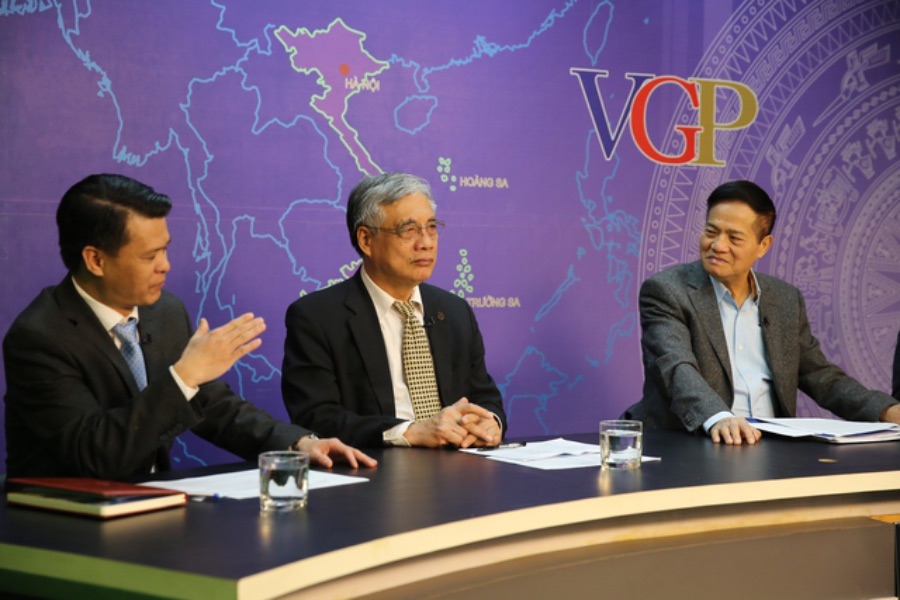
Assoc. Prof. Dr. Tran Dinh Thien: The opportunities and challenges are huge, but our capacity may not be able to meet them. We are in good spirits and have momentum to move forward, but there are still many bottlenecks and bottlenecks. Therefore, the way to raise issues in the coming time is not only based on enthusiasm because the difficulties have not yet begun. To solve this problem, we must start from the top down, we must shape each agency and each individual with clear functions and tasks. Only with functions and tasks can we prepare well for capacity and conditions. I think that the professionalism of the work is not yet high, so we need to reposition it. To do this, the general principle is that the State must create conditions so that the tasks set for agencies and individuals become opportunities. The State needs to turn national tasks and national challenges into mechanisms and conditions for implementation, thereby turning them into opportunities for individuals and businesses. That is very important. Therefore, the open approach, the approach of empowerment, self-determination, self-doing, self-responsibility needs to be deployed and implemented. I think it is not easy because how much empowerment, implementation on what basis, what resources, what risks... Currently, the mechanism is not clear.
Therefore, one of the key points in the upcoming organizational apparatus is a truly clear approach, transformed into a mechanism, into an operating principle, which is to empower the subjects to self-determination, self-doing, and self-responsibility. If we can do it in such a spirit, it will open up creative space, space for opportunities, thereby continuing to promote the current momentum and taking advantage of this once-in-a-lifetime opportunity.
Dr. Nguyen Van Dang: Talking about opportunities and chances as well as readiness in the forces, we need to mention here the subjects of the political system, the subjects of the market, of enterprises and the subjects of society, what each individual citizen needs to do. I think that each individual or business organization has a ready-made need, everyone wants to have a job to improve their income and living standards; enterprises have a need to expand production and business. But I put more emphasis on the role of the political system and public agencies in discovering opportunities and creating opportunities to help people and businesses access opportunities to realize their aspirations.
Regarding opportunities, there are many opinions about what opportunities the country can "rise up", I think that opportunities are not naturally available, opportunities are that we have to shape, analyze, determine which are opportunities associated with each industry, each field, which are short-term or long-term opportunities. Therefore, the capacity of the Party, of the system of State agencies in identifying opportunities, thereby promoting more opportunities so that people and businesses can take advantage of them. That is a huge challenge. However, I think that the opportunity on the subjective side is that the current Vietnamese social mentality is very ready, eager to rise up, it has been a long time since we have seen the joy, excitement, inspiration, confidence moving towards the future of the entire political system and society.
I would like to mention the challenges in the future, especially bringing the country "upward" by concretizing the leadership vision until 2045, first of all, maintaining the leadership role of the Party. Currently, the Party has aroused the development aspirations of the whole nation, so how can the Party continue to maintain the national leadership in this work to gather and maintain the support of social forces in the long term, avoiding excitement for a while and then going down, which is not good for realizing the dream of national development.
The second is how public authorities, through the policy system, can create more opportunities for individuals and organizations to maximize their potential to contribute to the country's development.
Thirdly, in the process of developing the country, we are witnessing the determination, determination, and consistency between the leaders' words and actions. So how can we continue to maintain this spirit, especially the determination in action to create clear changes in reality, avoiding inconsistency in words, policies and actions or half-hearted actions, it will be very difficult to achieve the goals set at the 13th National Party Congress. This has been proven in practice in developed countries such as Korea and Singapore. Only by being disciplined and determined in action for a long time can they realize their goals.
Assoc. Prof. Dr. Dao Duy Quat: From comrade Nguyen Phu Trong to current General Secretary To Lam, they all said that the first solution, that is, all activities from the Central to the grassroots level of all party members and cadres, must take the people as the center, as the subject, and the measure is whether the people are satisfied or not.
In particular, previously there was the Secretariat's Directive on "People know, people discuss, people do, people inspect", now it adds "people benefit", but it must be specific, what people know must be let people know; what people are discussed must be discussed specifically; what people are inspected must be inspected how, what people benefit must be calculated...
And the second thing is to decentralize clearly, that is, what provinces and agencies can decide and do, and cannot just ask for opinions. Decentralization and delegation of power, but even at the Government and at the Central level, must be very clear, then it is certain to arouse the proactive and creative strength of all levels and of everyone.
11:30 December 27, 2024
Dr. Nguyen Si Dung: The history of the Vietnamese Revolution shows that, under the Party's wise and talented leadership, by arousing the will of self-reliance, self-confidence, self-reliance, self-strengthening, and national pride, by mobilizing the strength of great national unity combined with the strength of the times, the Communist Party of Vietnam has led our nation to victory after victory, creating miracles.
The great achievements of the country after 40 years of renovation under the leadership of the Party help us accumulate enough position and strength for breakthrough development, acceleration, take-off, and rise in the next revolutionary stage.
From the analysis of the guests at the Seminar, we understand better, have a more general and vivid view of the awareness, connotation, theoretical basis and scientific practice for our country to firmly step into the new era; the requirements set forth in the comprehensive and synchronous implementation of tasks and solutions to create breakthrough development in all fields; the opportunities and fortunes of the country in the new era as well as the difficulties and challenges that need to be identified to respond to and overcome.
With the country's position and strength as it is today, this is the ripe time for us to confidently step forward into a new era - an era of national growth, for a socialist Vietnam, with rich people, strong country, democracy, fairness, civilization, comprehensive development, successful integration, and progress with the times.

